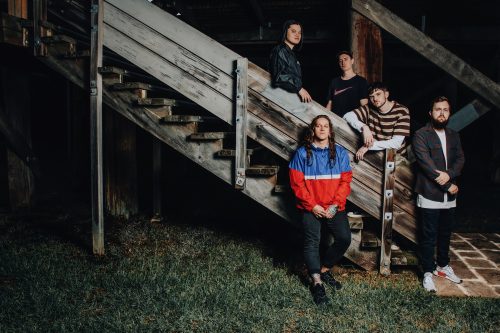Details
It’s been two years since Polaris released their ARIA-nominated, Top 10 debut, The Mortal Coil which introduced the group to legions of fans around the country and, thanks to an extensive international touring schedule, the world.
When it came time to making their new album, The Death Of Me, the Sydney outfit knew they had a tall order on their hands.
“We wanted to walk a line between maintaining what’s defined our band and brought people to our music in the first place, while trying to write for ourselves and keep ourselves interested,” begins drummer Daniel Furnari, one of the main songwriters in the unit. “Being our second full-length, we knew it was important for us to surprise the listener as well – nobody wants to hear the same record twice. We wanted to give them things they wouldn’t expect, take them to new places, but also for it to be definitively a Polaris record, building on what we’ve been working towards.”
Polaris returned to the house in the small South Coast town of Mollymook where they made The Mortal Coil, converting it into a temporary studio. The familiar surrounds acted as something of a refuge after the high-pressure claustrophobia of touring.
Accompanying the band was their front of house sound engineer, Lance Prenc, and long-time friend Scott Simpson (of Melbourne band Alpha Wolf), both of whom co-produced the album with the band. They tried a few new approaches to song writing, with tracks such as the anthemic first single, Masochist starting life as a vocal melody, around which the riffs were built, as opposed to the other way around. As the main lyric writer in Polaris, Furnari warns that The Death Of Me contains some of the bleakest material he’s ever penned, with recurring lyrical motifs and ideas floating throughout.
“We’ve experienced more of the world and gone out of our comfort zone, and I think that’s audible in the music,” says Furnari. “I think a lot of things people enjoyed about The Mortal Coil we’ve managed to retain, but we’ve stretched the envelope further in every direction of what we consider to be our sound. I just don’t think we could have thought of most of this stuff two years ago.”
